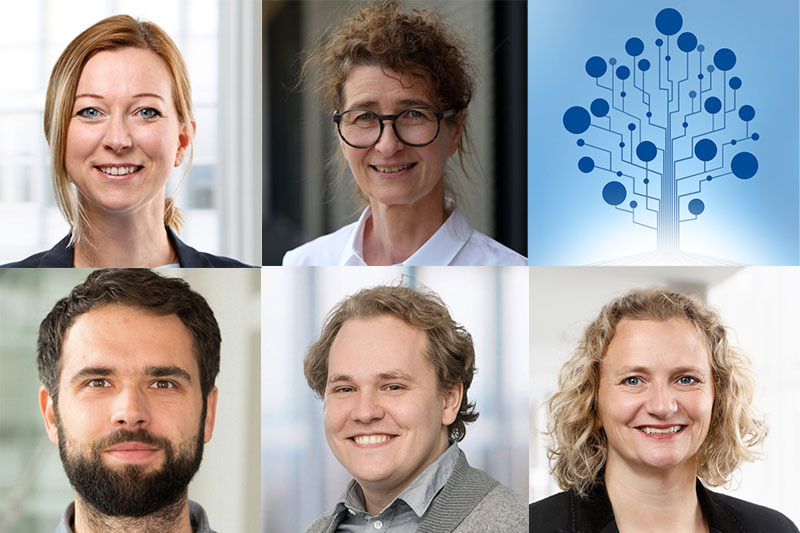News
Four CATALPA topics at Learning AID
[30.08.2024]Generative AI, (trusted) learning analytics, formative feedback - CATALPA presented four different topics at the Learning AID in Bochum, Germany, from September 2-3.
 Photo: Hardy Welsch/Veit Mette/Bernd Müller
Photo: Hardy Welsch/Veit Mette/Bernd Müller
Trusted Learning Analytics and AI for formative feedback
Artificial Intelligence (AI) and Trusted Learning Analytics (TLA) can support learners in acquiring expertise and developing self-regulation. Heike Karolyi's presentation focused on value-sensitive design as a prerequisite for sustainable implementation of these technologies. She presented a personalized feedback system that she and her colleagues developed as part of the BMBF-funded IMPACT project. The AI and Learning Analytics Service is an optional service designed to support students in the learning process by providing visualizations and written feedback on their course activities. At the same time, it provides feedback literacy skills. In this way, students should later be better able to use self-monitoring for their individual learning progress.
Reversed Big Brother Principle in Learning Analytics
Programme of the Learning AID
The Learning AID is Germany's largest conference on learning analytics, artificial intelligence and data mining in higher education. Find out more about the programme here (German).
In learning analytics, the focus so far has been on learner data, while teachers, especially in online courses, can remain largely hidden. The Reversed Big Brother Principle presented by Niels Seidel creates more visibility and transparency and reveals to learners, for example, whether teachers are in the course and what they are currently doing, how much time the teachers have spent in the course, how many corrections have been made/questions answered, or which learning analytics data of the students the teachers have used. At the re:publica conference, Niels Seidel had already presented the first results of a survey among instructors and students about acceptance.
Enhancing academic skills with generative AI
Silke Wrede and Lars van Rijn provided insights into the activities of the AI.EDU Research Lab 2.0. The AI.EDU Research Lab explores the use of AI in higher education. The goal is to promote academic skills and self-regulation during studies. The contribution presents the results of a study on the use of freely available GenKI applications by students in a bachelor's degree course in educational science. The applications support students in the development of a term paper topic and a guiding research question.
Providing access to generative AI
The framework conditions for the provision of generative AI at universities were the subject of a discussion moderated by CATALPA executive board member Prof. Dr. Claudia de Witt at Learning AID together with PD Dr. Malte Persike (RWTH Aachen University). The two were continuing a discussion that began at a symposium on the topic on September 1, 2024 at the FernUniversität in Hagen. Topics included data protection, costs and scalability, as well as the choice between different AI systems.

